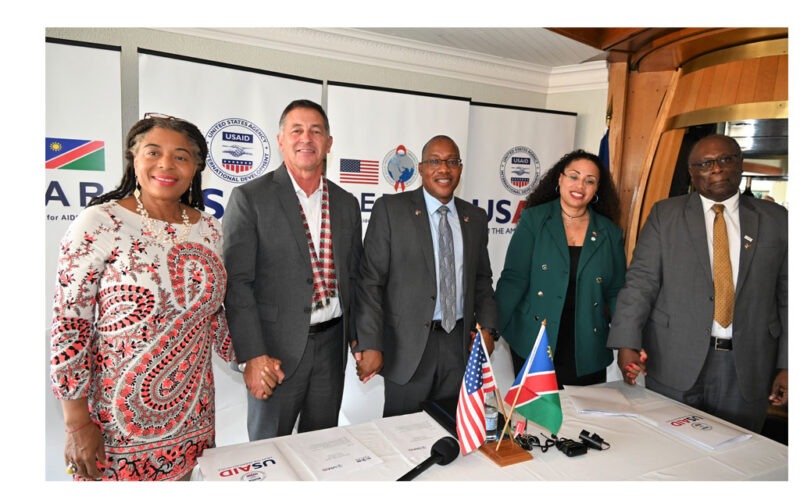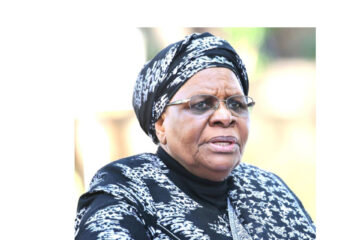Stefanus Nashama
The United State President’s Emergency Plans for AIDS Relief known as (PEPFAR) will invest approximately N$840 million to provide health and social services to vulnerable children, adolescents and youth in Namibia.
PEPFAR Namibia Deputy Principal for USAID, Tamara Cox, made this announcement at a media briefing yesterday in the capital.
According to Cox, Reach Namibia is a five-year program from 2023 to 2028 operating in eight regions in Namibia where 80 percent of the population resides.
She said the program is implemented by two local organisations which are Project HOPE Namibia, operating in Khomas, Oshana, Omusati, Ohangwena, Oshikoto and Zambezi Regions, and Intrahealth Namibia, which operates in Kavango East and West regions.
The program will be managed by the United States Agency for International Development (USAID), she added.
Cox explained that Reach Namibia is built on the foundation of the DREAMS HOPE program, which seeks to reduce new HIV infections among adolescent girls and young women in the country and empower them with social protection and safe spaces, education and economic skills, as well as access to family planning and reproductive health services.
She also indicated that the program will reach children and youth who are made vulnerable by HIV in the country to improve access to health and social activities to prevent them from contracting HIV and stay AIDS-free.
She stated that Reach Namibia will fortify young Namibians and their communities to meet the Ministry’s goal of 97-97-97 by 2028.
“This means 97 percent of the population know their HIV status, 97 percent of those who are HIV positive are on treatment and 97 percent of those are on treatment and have a reduced viral load, she stressed.
Meanwhile, USAID Deputy Assistant Administrator, Maria Detherage, who also spoke on the same occasion said the lack of adequate nutrition is already bad enough, and it hits some people even harder than others.
“The poor, the vulnerable and those in need of medication are victimised because no medication should be taken on an empty stomach, for example, antiretroviral medicines to treat HIV,” she emphasised.
Detherane also revealed that she recently discussed with the Executive Director in the Office of the Prime Minister, I-Ben Nashandi, about Namibia’s challenges concerning drought situation, availability and access to potable water and consequently food security.
While speaking at the same event, Executive Director of the Ministry of Health and Social Services, Ben Nangombe, said Namibia currently stands at 95-97-94, putting the country at the cusp of achieving an AIDS-free generation.
“The 95-97-94 means 95 percent of the population know their HIV status, 97 percent of those who are HIV positive are on treatment and 94 percent of those on treatment have a reduced viral load,” Nangombe explained.
He also clarified that DREAMS HOPE has nothing to do with the promotion of homosexuality as perceived by some members of the public.
Nangombe explains that the program aims to decrease new HIV infections among adolescent girls and young women and decrease teenage pregnancy and gender-based violence rates among adolescent girls and young women using evidence-based interventions.




